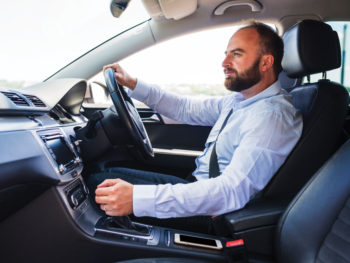Mobility-as-a-Service: An endgame for fleets?
Will the mobility revolution see the company car dethroned, wonders Natalie Middleton.

The BVRLA says businesses will continue to offer cars either as an employee perk or as an essential tool for doing business
Lyft may have an axe to grind but, according to the ride-sharing giant, society is “in the endgame for traditional ‘car ownership’”.
American financial and business news website Business Insider says the firm’s founders told investors earlier this year that they believe “the world is at the beginning of a shift away from car ownership to Transportation-as-a-Service, or TaaS. Lyft is at the forefront of this massive societal change.”
The biggest impact of such change has been on private cars; according to the publication, an estimated 300,000 customers in the US have given up their personal cars because of Lyft.
With the UK already seeing declining numbers of company car take-up, could this impact fleet demand further?
Reassuringly, new research from Arval actually finds that few businesses would be willing to replace their company car with a mobility solution instead. Part of the 2019 edition of Arval Mobility Observatory – which covers 3,930 fleets, the analysis saw fleets asked whether they would fully or in part give up their vehicle for a range of alternatives; just 7% said they would probably or certainly opt instead for car sharing, 9% for ride sharing, 8% for a mobility budget and 7% for mid-term rental. However, somewhat worryingly 11% of businesses would consider a switch to a private lease vehicle.
The research also looks at why drivers are unlikely to want to give up their company cars. They are: ease of motoring (mentioned by 16% of respondents); not having to finance their own vehicle (14%); no risk of ownership (10%) and; delivery of a new car every three to four years (8%).
Shaun Sadlier, head of Arval Mobility Observatory in the UK, says: “A mixed provision model is one that we have been saying for some time is the most likely to develop in the majority of businesses, where a range of mobility solutions are used alongside company cars with employees using the most appropriate form of transport for each journey.”
It’s a view shared by other leasing and mobility giants, including LeasePlan UK, with Matthew Walters, head of consultancy and customer data services, saying the business expects to see a continued demand for the use of company vehicles in the next five to 10 years.
Walters adds: “This will be spurred on by a combination of developments, including population and job growth, innovation and technology that will make cars safer, greener and more cost-effective to own.
“However, that’s not to say we won’t continue to see Mobility-as-a-Service (MaaS) increase in popularity as new types of individual-focused solutions become available that will make cars easier to access.
“It’s therefore imperative that leasing providers expand their range of services to adapt to changing needs and behaviours towards vehicle ownership. For example, vehicle subscription services are an emerging and exciting trend, as well as flexible leasing options that can offer the user an option between daily hire and long-term contracts.
“Ultimately, there will still be a need for the company car, however, businesses and drivers will have more options available to them to suit individual requirements.”
Meanwhile Uwe Hildinger, chief operating officer, Alphabet (GB), outlines the firm’s view that the future of mobility is electric, adding: “For it to really take off in terms of mass adoption it needs to be both seamless, as well as connected.
“We believe that connectivity is the foundation for delivering electrified seamless mobility. In future, mobility solutions will be personalised to the individual and driven by their needs.”
Alphabet’s work includes the launch of the AlphaGuide Mobility app, which is becoming customers’ key interface with the firm’s services; it currently offers access to AlphaCity carsharing vehicles but in the future, the firm believes all modes of transport can be integrated into a single app.
However, Alphabet’s ‘What moves Britain?’ research has also showed that three-quarters of UK commuters with a vehicle say it is still essential, which the company says “proves that the car remains an important, enduring mobility solution for Britain”.
With the study also revealing that only one in five British adults has driven an electric or hybrid vehicle already, Alphabet says next April’s major drop in BiK rates for EVs could see a surge of these vehicles in the company car market.
And while the BVLRA also says that the future of mobility will see an increasing number of new modes of transport, chief executive Gerry Keaney adds: “Technology is making it easier for people to take a more integrated, multi-modal approach to their journeys, but we do not see a time that the car will be removed from this picture. New mobility solutions will sit alongside the car and complement the existing transport network.
“There will always be a place for the company car as businesses will continue to offer cars either as an employee perk or as an essential tool for doing business.”















